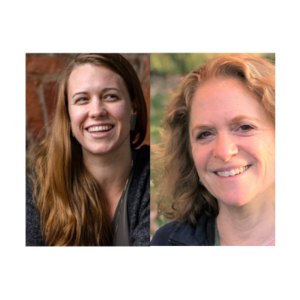In 2016, Philadelphia’s economy was doing well by many traditional measures, boasting nine consecutive years of population growth, declining unemployment, increasing levels of educated residents, and a growing national reputation as a startup and technology hub.
Ben Franklin Technology Partners, having invested $200 million in more than 2,000 companies generating more than 32,000 jobs since 1983, was proud of its role, alongside so many regional partners, in seeing Philadelphia through challenging economic times to a slow but steady rise. That year, Ben itself was buzzing as it was entering its most prolific investing year ever.
Simultaneously, Ben was not blind to the deep, complex challenges facing the region and the people who call it home. Or, for that matter, the unintended systemic consequences that established and emerging tech ecosystems — like San Francisco or Austin — were experiencing across the country. Inequities within fast-growing and concentrated innovation hubs, unsustainable CO2 emissions, and other negative repercussions are (and continue to be) serious challenges related to technology’s acceleration. How could Philadelphia and Ben do more and better, leveraging technology beyond innovation, to model positive impact in this region and beyond?

McFadden and Berger Bradley. (Courtesy image)
Committed to pursuing technology’s highest potential, Ben was energized by a compelling trend: for-profit enterprises proactively, explicitly tackling meaningful problems (instead of exacerbating them). In addition, a growing community of impact-motivated investors tuned in to the idea that an investment could — and should — advance social, environmental, and economic value beyond its financial return.
Connecting these key stakeholders (for-profit ventures and motivated investors) in pursuit of catalyzing impact from and for the Philadelphia region seemed a promising experiment. And as a pleasant surprise, seeds for this experiment were already growing in Ben’s portfolio companies, co-investors, and networks. And a planning grant from the U.S. Economic Development Administration enabled Ben to catalyze the next phase of this work.
A first step: ImpactPHL Ventures is born
In summer 2016, Ben was at the center of a collaborative that launched ImpactPHL, an alliance dedicated to growing Philadelphia’s impact economy. Momentum from that launch not only led to ImpactPHL eventually evolving into an established 501(c)3, but it also gave birth to ImpactPHL Ventures, a $14 million capital collaborative by Ben with commitments from seven regional investors, including universities, a health insurer, pension funds, a family office, and an angel network.
Always motivated by the twin values of job creation and financial growth, Ben now set out more deliberately to make investments into regional startups creating tech-enabled, impact-driving solutions. The pipeline was robust and varied. Over the next five years, this portfolio has included health, education, environment, energy, public safety, and other civic innovation.
Seed and early stage investing required patience and a light touch that wouldn’t let assessment overwhelm the nimble adjustments all young companies must make.
During this time, Ben and these companies learned a lot about the challenges of measuring impact. For some young companies, impact was central to their everyday value proposition. Some would not know for years if their innovation could make a difference. And Ben learned how much impact was in the eyes of the beholder, with each investor’s interests reflecting their organizational or personal priorities. This all aligned with what impact-motivated entrepreneurs and investors were learning across the evolving national and global market. Seed and early stage investing required patience and a light touch that wouldn’t let assessment overwhelm the nimble adjustments all young companies must make.
This year, as Ben celebrates ImpactPHL Ventures’ five-year anniversary, this focus on impact rings even truer. Indeed, the pandemic taught us that technology’s greatest power is in impact, not just innovation. Technology is a tool to solve problems, and the Philadelphia region is very much a place where that is happening.
ImpactPHL Ventures’ portfolio includes companies responding directly to COVID, from meeting the needs for healthcare innovation and remote learning to tackling the range of civic and economic challenges we have faced in these past 17 months. Today, with $17 million invested in 53 ventures operating across four counties and diverse impact areas, Ben is only beginning to uncover and help unlock the latent potential that exists for investing in early impact-driving innovation across our region.
Big change can start with small companies
Here’s one example. Did you know that 20-25% of people experience mental health challenges — post-pandemic, 40% report symptoms of anxiety or depressive disorder — yet 75% of these do not receive care? The implications, not only for individuals and their families but for our collective social body, are wide-ranging and profound.
In the case of the country’s mental health crises, big change starts with companies like NeuroFlow, a 45-person venture launched five years ago in Philadelphia. NeuroFlow has developed a software solution that directly benefits over 350,000 patients with mild to moderate health needs, with a presence in over 30 U.S. states. By coordinating care through functions like monitoring and risk stratification, NeuroFlow’s software not only improves the behavioral and physical health of patients, it reduces workflow inefficiencies for clinicians as well as total cost of care. It’s a win across the board — for patients, most importantly, but also for clinicians, overall societal well-being, and for NeuroFlow itself (and stakeholders like employees, partners, and investors).
With one look at ImpactPHL Ventures’ portfolio, you’ll quickly see that NeuroFlow is on a strong growth trajectory, but is not an outlier. Big change is coming from innovators across the region, on everything from fighting food insecurity and reducing plastic waste to eliminating student debt and saving people’s vision. Founders are often seeking to solve problems they’ve experienced or witnessed first-hand. An ambulance medic who understands the critical role of transportation in ensuring equitable health access for vulnerable populations founded Roundtrip. An advertising executive wanting to increase kids’ access to the benefits of youth sports (better school performance, healthier living) creates LeagueSide. These are just two ways experience and mission can result in substantive impact.
This fall, Ben will share ImpactPHL Ventures’ five-year reflection, providing an overview of the initiative, introducing its portfolio companies, their stories, and what they’ve learned, and taking you deeper into a few of their journeys to better illustrate what “impact” means. This look back will shape how Ben builds forward into the next five years of impact-driving investment.
Big change can be enabled with key, early investments
With the right vision and resources, the potential impact driven by small companies is boundless. And if COVID-19 taught us anything, it’s that now is the time to seed new futures — in economic resilience, in equitable health outcomes, in education, and in climate action. It comes down to how we’ll invest our time, energy, and — importantly — dollars. At Ben, we’re excited to build upon the foundation of ImpactPHL Ventures’ first five years, and drive new possibilities, change, and impact over the next five.
What impact do you want to seed in our region? From our roles at both ImpactPHL and Ben Franklin, we’d love to have a conversation about how we can help turn that vision into reality.

This essay was originally published via ImpactPHL Perspectives, a multi-part series which explores the many facets of the impact economy in Greater Philadelphia from the perspectives of its doers, movers, shakers and agents of change. This version has been edited for style.
Before you go...
Please consider supporting Technical.ly to keep our independent journalism strong. Unlike most business-focused media outlets, we don’t have a paywall. Instead, we count on your personal and organizational support.
Join our growing Slack community
Join 5,000 tech professionals and entrepreneurs in our community Slack today!

The man charged in the UnitedHealthcare CEO shooting had a ton of tech connections

From rejection to innovation: How I built a tool to beat AI hiring algorithms at their own game

How a laid-off AI enthusiast pivoted to become a founder — while holding down a day job


